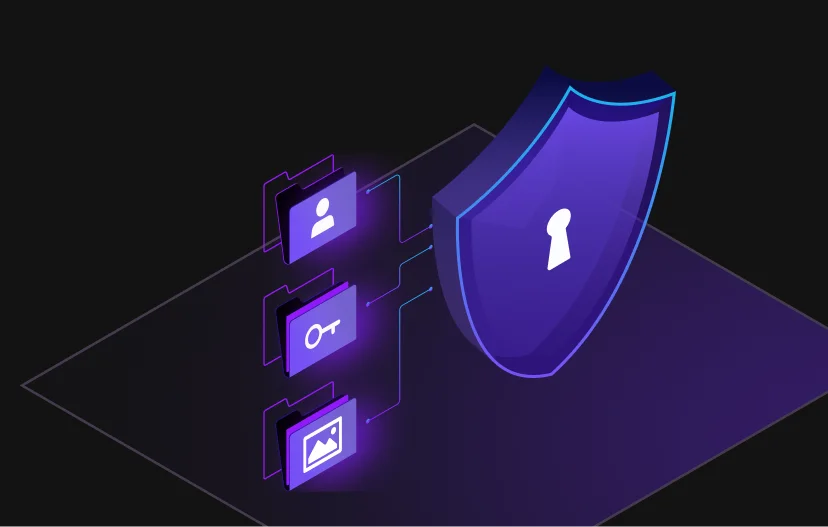The Wake-Up Call: The recent cyberattack on Change Healthcare, a subsidiary of UnitedHealth Group, compromised the sensitive data of nearly 190 million people (source). Medical records, insurance details, and personal information were exposed, proving that even the biggest companies are not immune to breaches.
Incidents like this should make every security officer ask: Who truly controls our data?
Most companies store critical information in the cloud, trusting their cloud providers to keep it safe. But what happens if that cloud provider is breached? Or if an insider at the cloud company accesses your sensitive data?
The reality is that encryption is only as strong as the control you have over it. This is why Bring Your Own Encryption (BYOE) is no longer just an option—it’s a necessity.
BYOE allows organizations to encrypt their data using their own keys and encryption mechanisms rather than relying on a cloud provider’s built-in security.
With this setup, only you have control over your data’s security, not your cloud provider, government agencies, or malicious insiders.
However, the real value of BYOE goes beyond the obvious.
The Five BYOE Benefits that Security Professionals Might Not Have Considered
1. The "Cloud Backdoor" Problem—And How BYOE Shuts It Down
Many cloud providers offer to encrypt customer data, but here’s the catch: they also control the encryption keys. This means they can decrypt your data. If a government agency demands access under legal provisions like the CLOUD Act, or PATRIOT Act, your cloud provider may be forced to hand over decrypted data—without you even knowing.
BYOE eliminates this risk because only you control the encryption keys. If law enforcement or a government agency demands access, they’ll have to come directly to you—not your cloud provider. This gives you legal visibility and control over data access, ensuring that no "backdoor" is used without your knowledge.
2. Vendor Exit Strategy: Take Your Security with You
Cloud providers prefer locking customers into their ecosystem. But what if you need to switch providers? If you’re using the cloud provider’s encryption service, you have a major problem: you can’t take your encrypted data elsewhere without decrypting it first, exposing it to risk during migration.
With BYOE, your encryption is independent of the cloud provider. This means you can migrate your data between clouds without ever decrypting it, keeping it secure throughout the transition.
3. No "Security Theater"—Real, Measurable Risk Reduction
Many security features that cloud providers offer sound impressive but might not always translate into full protection. You might see terms like "military-grade encryption" or "zero-trust architecture," but these often boil down to limited security unless you have direct control over your encryption implementation.
Bring Your Own encryption (BYOE) shifts security from a passive check-the-box exercise to real, provable security. You don’t have to take a vendor’s word for it—you can validate and audit your encryption yourself. Security teams can set their own encryption policies, enforce compliance, and demonstrate actual risk reduction rather than just hoping the cloud provider’s security measures are enough.
4. Ransomware Resilience—Because Attackers Can’t Steal What They Can’t Unlock
One of the most overlooked benefits of BYOE is its power against ransomware attacks. Traditional cloud security measures focus on preventing unauthorized access, but what happens when an attacker gains access through stolen credentials or insider threats?
In many cases, ransomware gangs don’t just lock data—they steal it before encrypting it, using it as leverage in double extortion schemes.
BYOE significantly reduces this risk. Since attackers can’t access unencrypted data without your encryption keys, stealing data becomes far less profitable for them. Even if attackers infiltrate your cloud infrastructure, they will only find useless, encrypted files—essentially locked safes without combinations.
This layer of protection goes beyond traditional access controls.
5. Defensible Deletion: When You Delete, It Stays Deleted
One of the biggest myths about the cloud is that you can always delete your data whenever you want. The truth is that cloud providers may keep backups or snapshots that you have no control over. This means that even after you delete your files, your data is not gone.
With BYOE, deletion is permanent. If you destroy your encryption keys, your data becomes unrecoverable—even if remnants still exist in cloud storage. This is crucial for organizations that must ensure true data erasure for compliance, GDPR "right to be forgotten" requests, or simply minimizing liability. It gives you real control over data retention instead of relying on a cloud provider’s vague data deletion policies.
Conclusion: The Time for BYOE is Now
We can’t rely solely on cloud providers to protect our most sensitive data—we need to take ownership of our security. Bring Your Own Encryption (BYOE) is not just about keeping data safe; it’s about ensuring we are the ones in control.
From shutting down cloud backdoors to making ransomware attacks ineffective, BYOE is an essential strategy for modern enterprises. If we truly care about protecting our customers, our intellectual property, and our company’s future, then the message is clear: BYOE isn’t optional—it’s mandatory.
BYOE is closely linked to Bring Your Own Key (BYOK), where organizations create their own encryption keys while still using cloud provider encryption. While BYOE provides complete independence, BYOK offers a balanced approach for those leveraging cloud-native security but wanting to retain control over their encryption keys.
Fortanix’s BYOK solution allows organizations to generate, store, and manage encryption keys securely across hybrid multicloud environments. With centralized key management, policy enforcement, and zero-trust security models, Fortanix ensures that businesses can maintain full ownership and visibility over their encryption keys while still benefiting from cloud efficiencies.
Get in touch with Fortanix today to see how we can help you take control of your encryption and protect your business from evolving threats.











